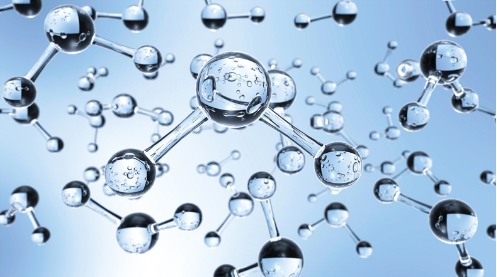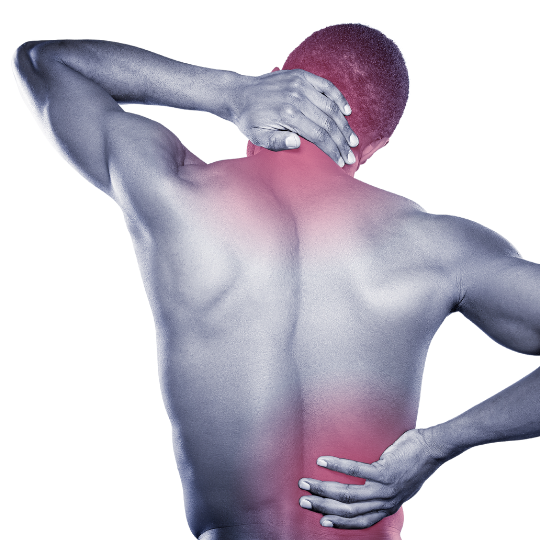Once a person catches COVID, it doesn't always go away easily. Approximately 10-35% of COVID survivors suffer from Long Covid whilst 85% of those who were hospitalised as a result of COVID experienced severe post-COVID symptoms.
Credit: https://www.ncbi.nlm.nih.gov/pmc/articles/PMC9846887/
Even after the line fades on the test, many COVID patients still find themselves facing long-term illnesses such as fatigue, shortness of breath, 'brain fog' and insomnia. But what if there was a solution?
When COVID enters your body, it enters deep into your lungs, into the Alveoli. It is a small organ that medicine normally cannot reach. This means that lung disease is difficult to treat conventionally. The only exception to this is: Molecular Hydrogen.
In China, Molecular Hydrogen is utilized in their post-Coronavirus treatment programs. Let's explore why Hydrogen helps Post-COVID symptoms.

1. Antioxidant
The antioxidative effects of molecular hydrogen neutralises toxic free radicals formed in the lungs by the COVID virus, which relieves oxidative stress and repairs cells. Hydrogen selectively targets the bad free radicals while leaving all other cells untouched. The only byproduct of this neutralisation is water! As Hydrogen is capable of selectively neutralising toxic free radicals without affecting other body cells, it means that there are no side-effects or contraindications.
2. Anti-Inflammatory
Inflammation is your body's natural response to disease but chronic inflammation can lead to long-term health issues. When your body recovers poorly post-COVID, it's because your body's inflammatory response is ringing its alarm bells while it detects the oxidative stress in your body. By neutralising free radicals, Hydrogen relieves your body's inflammation.
3. Improves Sleep
Oxidative stress can affect sleep. By neutralising it, Hydrogen helps you get the sleep you deserve. Also, when your body is less inflamed, sleep becomes more comfortable and natural.
4. Boosts Energy
Fatigue is a common Post-COVID symptom. With Hydrogen's reparative effect on cells, it brings back your cell's ability to generate energy to give your body the boost it needs. Furthermore, with Hydrogen, you'd be sleeping better which means that you'd have more energy during the day!
Discover how molecular hydrogen aids Post-COVID recovery: https://youtu.be/Kzdw5XnOiZk?si=UtQOoQLT5jRgWffG
Our Post-COVID Recovery Care Plan

Hi-Bliss Hydrogen Therapy combines the curative effects of Molecular Hydrogen with our certified physiotherapists to help patients recover after contracting COVID. Beyond just treating the symptoms, Hi-Bliss Hydrogen Therapy also guides you on lifestyle changes that supplement our Hydrogen Therapy to help you solve your health conditions from its root cause.
If you are interested in finding out how Hi-Bliss Hydrogen Therapy can help you, make your appointment now!
Can’t sleep? If you struggle to fall asleep or stay asleep at night, it can take a huge toll on your health and well-being.
Insomnia is the inability to fall asleep or stay asleep at night, resulting in unrefreshing or non-restorative sleep. And it is a very common problem which has great ramifications as people who suffer from insomnia tend to have low energy, an inability to focus, inability to function during the day, grumpiness or even depression. Chronic insomnia can even contribute to serious health problems.
Some people struggle to get to sleep no matter how tired they are. Others wake up in the middle of the night and lie awake for hours, anxiously watching the clock. But, because different people need different amounts of sleep, insomnia is defined by the quality of your sleep and how you feel after sleeping - not the number of hours you sleep or how quickly you doze off. Even if you are spending eight hours a night in bed, if you feel drowsy and fatigued during the day, you may be experiencing insomnia.
Although insomnia is the most common sleep complaint, it is not a single sleep disorder. It is more accurate to think of insomnia as a symptom of another problem. The problem causing the insomnia differs from person to person. It could be something as simple as drinking too much caffeine during the day or a more complex issue like an underlying medical condition or feeling overloaded with stress or responsibilities.
What are the Symptoms of insomnia?
Insomnia is generally split into two types. The first is acute insomnia which is short-term and typically lasts for a few weeks. The second is chronic insomnia which is when sleepless nights occur a few times a week for more than three months.
Causes of insomnia: Figuring out why you can’t sleep
In order to help with sleep, we must first identify which category the individual’s insomnia falls under. The first category is primary insomnia which would indicate that the insomnia is not caused by any health conditions. The other category is secondary insomnia which would identify health problems or substance abuse as the cause of the insomnia.
Here are some causes of primary insomnia:
Now that we have the causes of primary insomnia out of the way. Let us take a deep dive into the causes of secondary insomnia. They include:
Here are some questions that may help you identify whether you have primary or secondary insomnia:-
How to get the sleep that you need
Whether you’re looking to resolve a specific sleep problem, or just want to feel more productive, mentally sharp, and emotionally balanced during the day, experiment with the following sleep tips to see which work best for you:
Primary/acute insomnia is relatively easy to treat and often the simplest methods prove to be the most effective. Secondary insomnia is harder to treat than primary insomnia and the doctor may suggest behavioural therapy as a way to cure it. These require a change in lifestyle patterns and adopting habits that promote sleep.
It is extremely important that we practice good sleeping habits as it could affect our ability to perform during the day. Insomnia can be extremely frustrating so we must definitely take the necessary steps to ensure that we do not suffer from it. Sleep is something that most people nowadays pay little to no attention to so we must spread the word of its importance and overall effect on the human body.
Learn more how Hi-Bliss Hydrogen Therapy can help with Insomnia here: https://hi-bliss.com/our-wellness-programs/
How much sleep do you need? What happens when you don’t get enough? By understanding your body’s needs, you can improve your sleep schedule and the quality of your waking life.
The quality of your sleep at night directly affects your mental and physical health and how well you feel during the day. Sleep impacts your productivity, emotional balance, brain and heart health, immune function, creativity, vitality, and even your weight. No other activity delivers so many benefits with so little effort!
Minimal sleep loss can take a substantial toll on your mood, energy, mental sharpness, and ability to handle stress. And over the long-term, chronic sleep loss can wreak havoc on your mental and physical health. Sleep isn’t merely a time when your body shuts off. While you rest, your brain stays busy, overseeing biological maintenance that keeps your body running in top condition, preparing you for the day ahead. Without enough hours of restorative sleep, you won’t be able to work, learn, create, and communicate at a level even close to your true potential. Regularly skimp on “service” and you’re headed for a major mental and physical breakdown.
Facts about Sleep
How much sleep do you need?
There is a big difference between the amount of sleep you can get by on and the amount you need to function optimally. According to the National Institutes of Health, the average adult sleeps less than seven hours per night. In today’s fast-paced society, six or seven hours of sleep may sound pretty good. In reality, though, it’s a recipe for chronic sleep deprivation.
While sleep requirements vary slightly from person to person, most healthy adults need seven to nine hours of sleep per night to function at their best. Children and teens need even more. And despite the notion that our sleep needs decrease with age, most older people still need at least seven hours of sleep. Since older adults often have trouble sleeping this long at night, daytime naps can help fill in the gap.
The best way to figure out if you’re meeting your sleep needs is to evaluate how you feel as you go about your day. If you’re having enough sleep hours, you’ll feel energetic and alert all day long, from the moment you wake up until your regular bedtime. Here’s a chart on the Average Sleep Needs by Age (from the National Sleep Foundation) as a guide:-

Signs that you’re not getting enough sleep
If you’re getting less than eight hours of sleep each night, chances are you’re sleep deprived. What’s more, you probably have no idea just how much lack of sleep is affecting you. How is it possible to be sleep deprived without knowing it? Most of the signs of sleep deprivation are much more subtle than falling face first into your dinner plate. Here are some signs that you may be sleep deprived: -
The effects of sleep deprivation
Sleep deprivation has a wide range of negative effects that go way beyond daytime drowsiness. Lack of sleep affects your judgment, coordination, and reaction times. Here are some of the effects of sleep deprivation:
Sleep deprivation has a direct link to overeating and weight gain. There are two hormones in your body that regulate normal feelings of hunger and fullness. Ghrelin stimulates appetite, while leptin sends signals to the brain when you are full. However, when you don’t get the sleep you need, your ghrelin levels go up, stimulating your appetite so you want more food than normal. At the same time, your leptin levels go down, meaning you don’t feel satisfied and want to keep eating. So, the more sleep you lose, the more food your body will crave.
Learn more how Hi-Bliss Hydrogen Therapy can help with Sleep here: https://wordpress-851564-2937612.cloudwaysapps.com/treatment-services-stress-relief/
Sources:
HelpGuide, The National Institutes of Health, The National Sleep Foundation
